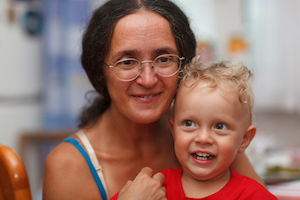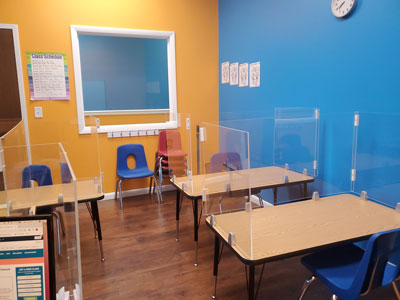 Bad habits picked up in the toddler years can lead to big problems as kids grow. Thumb sucking can cause damage to the teeth and gums, for example, while biting can keep kids from learning proper social skills. Thankfully, you can help your toddler ditch the bad habits before they can affect their development. Helping toddlers through each phase is definitely a process, however, and you may even find it difficult to spot the habits as they are developing. To better understand when to intervene and how to help your toddler grow and thrive, use this guide to learn what you need to know.
Bad habits picked up in the toddler years can lead to big problems as kids grow. Thumb sucking can cause damage to the teeth and gums, for example, while biting can keep kids from learning proper social skills. Thankfully, you can help your toddler ditch the bad habits before they can affect their development. Helping toddlers through each phase is definitely a process, however, and you may even find it difficult to spot the habits as they are developing. To better understand when to intervene and how to help your toddler grow and thrive, use this guide to learn what you need to know.
Things to Watch for as Toddlers Test Their Limits
Toddlers can pick up a lot of not-so-fun behaviors as they learn to navigate their worlds and cope with the constant flow of new information. Only when these behaviors are allowed to continue do they become bad habits. It is possible to intervene early in the process to encourage your toddler to change their tune.
Common toddler behaviors that could become bad habits include:
- Thumb sucking or pacifier use
- Nose picking
- Swearing
- Head banging
- Biting other people
- Chewing clothes or toys
- Nail biting
- Hair twirling or pulling
- Whining
Many of these behaviors occur as a result of a lack of healthy coping skills. As toddlers naturally experience big emotions throughout the day, they may release their feelings by cussing, biting, pulling at their hair or sucking their thumb.
The behaviors are often soothing and help manage the emotions, but they definitely have their drawbacks. Swearing, whining and biting, for example, can all cause social difficulties, especially when starting school.
Ways You Can Encourage Good Behavior
Many bad habits stem from toddlers’ inability to cope with all the information coming their way. They are constantly learning and adapting, often feeling quite overwhelmed or anxious with the changes. Even slight changes in routines can cause toddlers to feel distress and look for ways to cope. So, if you want to eliminate bad habits, you simply have to offer the tools kids need to cope in healthy ways – and help them use those skills with confidence.
Introduce Healthy Coping Skills
Toddlers can greatly benefit from learning about healthy coping skills they can use when they are feeling upset. When you notice your child engaging in the bad habits, you can introduce a different behavior that helps them feel better. If your child is sucking their thumb, for example, you can offer their favorite stuffed animal to cuddle instead. Introducing problem solving skills can help as well, as it helps build their confidence levels and reduces feelings of distress.
Talk It Out
Toddlers love to have conversations with their parents, especially if the talks are short and sweet. You can use gentle explanations about why the behavior is not allowed and how to handle the situation better. Listen as well to understand what caused your child to feel upset, so you can offer empathy and support.
Offer Encouragement and Rewards
Encouragement and rewards go a long way in helping toddlers feel motivated to change their habits. Until they can experience how well healthier coping habits work to eliminate their distress, they will always choose to use the behaviors they know work best to help them feel better, after all. Freely offer praise and encouragement to make the switch more rewarding and offer actual rewards, such as stickers and small toys, to back it up.
As you guide your toddler to making better choices in coping, you will see their behaviors improve. This process takes time and often has many setbacks, but if you stay the course, you will see steady improvements.





